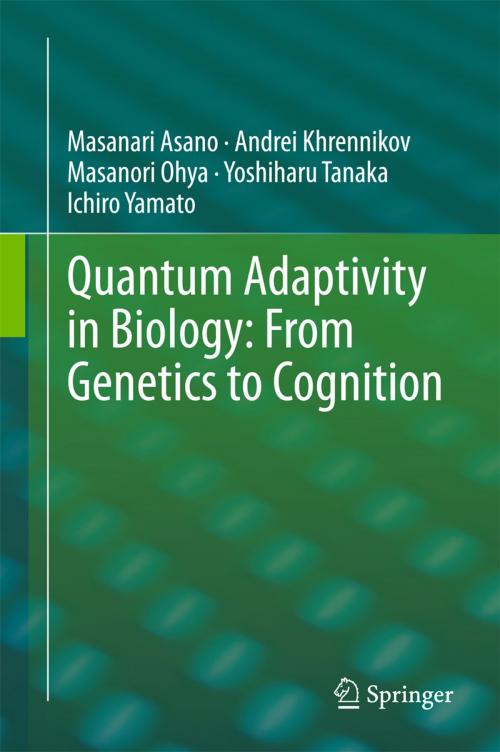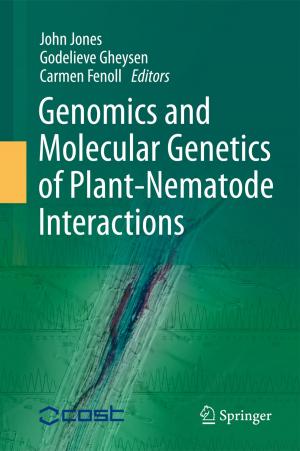Quantum Adaptivity in Biology: From Genetics to Cognition
Nonfiction, Science & Nature, Science, Biological Sciences, Biophysics, Biochemistry| Author: | Masanari Asano, Andrei Khrennikov, Masanori Ohya, Yoshiharu Tanaka, Ichiro Yamato | ISBN: | 9789401798198 |
| Publisher: | Springer Netherlands | Publication: | April 14, 2015 |
| Imprint: | Springer | Language: | English |
| Author: | Masanari Asano, Andrei Khrennikov, Masanori Ohya, Yoshiharu Tanaka, Ichiro Yamato |
| ISBN: | 9789401798198 |
| Publisher: | Springer Netherlands |
| Publication: | April 14, 2015 |
| Imprint: | Springer |
| Language: | English |
This book examines information processing performed by bio-systems at all scales: from genomes, cells and proteins to cognitive and even social systems. It introduces a theoretical/conceptual principle based on quantum information and non-Kolmogorov probability theory to explain information processing phenomena in biology as a whole.
The book begins with an introduction followed by two chapters devoted to fundamentals, one covering classical and quantum probability, which also contains a brief introduction to quantum formalism, and another on an information approach to molecular biology, genetics and epigenetics. It then goes on to examine adaptive dynamics, including applications to biology, and non-Kolmogorov probability theory.
Next, the book discusses the possibility to apply the quantum formalism to model biological evolution, especially at the cellular level: genetic and epigenetic evolutions. It also presents a model of the epigenetic cellular evolution based on the mathematical formalism of open quantum systems. The last two chapters of the book explore foundational problems of quantum mechanics and demonstrate the power of usage of positive operator valued measures (POVMs) in biological science.
This book will appeal to a diverse group of readers including experts in biology, cognitive science, decision making, sociology, psychology, and physics; mathematicians working on problems of quantum probability and information and researchers in quantum foundations.
This book examines information processing performed by bio-systems at all scales: from genomes, cells and proteins to cognitive and even social systems. It introduces a theoretical/conceptual principle based on quantum information and non-Kolmogorov probability theory to explain information processing phenomena in biology as a whole.
The book begins with an introduction followed by two chapters devoted to fundamentals, one covering classical and quantum probability, which also contains a brief introduction to quantum formalism, and another on an information approach to molecular biology, genetics and epigenetics. It then goes on to examine adaptive dynamics, including applications to biology, and non-Kolmogorov probability theory.
Next, the book discusses the possibility to apply the quantum formalism to model biological evolution, especially at the cellular level: genetic and epigenetic evolutions. It also presents a model of the epigenetic cellular evolution based on the mathematical formalism of open quantum systems. The last two chapters of the book explore foundational problems of quantum mechanics and demonstrate the power of usage of positive operator valued measures (POVMs) in biological science.
This book will appeal to a diverse group of readers including experts in biology, cognitive science, decision making, sociology, psychology, and physics; mathematicians working on problems of quantum probability and information and researchers in quantum foundations.















